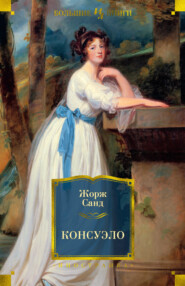По всем вопросам обращайтесь на: info@litportal.ru
(©) 2003-2024.
✖
The George Sand-Gustave Flaubert Letters
Настройки чтения
Размер шрифта
Высота строк
Поля
Maurice will take one of entomology. He walks three leagues with a friend of like energy in order to hunt in a great plain for an animal which has to be looked at with a magnifying glass. That is happiness! That is being really infatuated. My gloom has disappeared in making Cadio; at present I am only fifteen years old, and everything to me appears for the best in the best possible of worlds. That will last as long as it can. These are the intervals of innocence in which forgetfulness of evil compensates for the inexperience of the golden age.
How is your dear mother? She is fortunate to have you again near her! And the novel? Good heavens! it must get on! Are you walking a little? Are you more reasonable?
The other day, some people not at all stupid were here who spoke highly of Madame Bovary, but with less zest of Salammbo. Lina got into a white heat, not being willing that those wretches should make the slightest objection to it; Maurice had to calm her, and moreover he criticised the work very well, as an artist and as a scholar; so well that the recalcitrants laid down their arms. I should like to have written what he said. He speaks little and often badly; but that time he succeeded extraordinarily well.
I shall then not say adieu, but au revoir, as soon as possible. I love you much, much, my dear old fellow, you know it. My ideal would be to live a long life with a good and great heart like yours. But then, one would want never to die, and when one is really OLD, like me, one must hold oneself ready for anything.
I embrace you tenderly, so does Maurice. Aurore is the sweetest and the most ridiculous person. Her father makes her drink while he says: Dominus vobiscum! then she drinks and answers: Amen! How she is getting on! What a marvel is the development of a little child! No one has ever written about that. Followed day by day, it would be precious in every respect. It is one of those things that we all see without noticing.
Adieu again; think of your old troubadour who thinks unceasingly of you.
G. Sand
LX. TO Gustave Flaubert
Nohant, 14 June, 1867
Dear friend of my heart, I leave with my son and his wife the 20th of the month to stay two weeks in Paris, perhaps more if the revival of Villemer delays me longer. Therefore your dear good mother, whom I do not want to miss, has all the time she needs to go to see her daughters. I shall wait in Paris until you tell me if she has returned, or rather, if I make you a real visit, you shall tell me the time that suits you best.
My intention, for the moment, was quite simply to go to pass an hour with you, and Lina was tempted to accompany me; I should have shown her Rouen, and then we should have embraced you in time to return in the evening to Paris; for the dear little one has always her ear and her heart listening when she is away from Aurore, and her holidays are marked by a continual uneasiness which I quite understand. Aurore is a treasure of gentleness which absorbs us all. If it can be arranged, we shall then go on the run to grasp your hands. If it can not, I shall go alone later when your heart says so, and, if you are going south, I shall put it off until everything can be arranged without disturbing whatever may be the plans of your mother or yourself. I am very free. So, don't disturb yourself, and arrange your summer without bothering about me.
I have thirty-six plans also, but I don't incline to any one; what amuses me is what seizes me and takes me off suddenly. It is with a journey as with a novel: those who travel are those who command. Only when one is in Paris, Rouen is not a journey, and I shall always be ready when I am there, to respond to your call. I am a little remorseful to take whole days from your work, I who am never bored with loafing, and whom you could leave for whole hours under a tree, or before two lighted logs, with the assurance that I should find there something interesting. I know so well how to live OUTSIDE OF MYSELF! It hasn't always been like that. I also was young and subject to indignations. It is over!
Since I have dipped into real nature, I have found there an order, a system, a calmness of cycles which is lacking in mankind, but which man can, up to a certain point, assimilate when he is not too directly at odds with the difficulties of his own life. When these difficulties return he must endeavor to avoid them; but if he has drunk the cup of the eternally true, he does not get too excited for or against the ephemeral and relative truth.
But why do I say this to you? Because it comes to my pen-point; for in considering it carefully, your state of overexcitement is probably truer, or at least more fertile and more human than my SENILE tranquillity. I would not like to make you as I am, even if by a magical operation I could. I should not be interested in myself if I had the honor to meet myself. I should say that one troubadour is enough to manage and I should send the other to Chaillot.
A propos of gypsies, do you know that there are gypsies of the sea? I discovered in the outskirts of Tamaris, among the furthest rocks, great boats well sheltered, with women and children, a coast settlement, very restricted, very tanned; fishing for food without trading; speaking a language that the people of the country do not understand; living only in these great boats stranded on the sand, when the storms troubled them in their rocky coves; intermarrying, inoffensive and sombre, timid or savage; not answering when any one speaks to them. I don't even know what to call them. The name that I have been told has escaped me but I could get some one to tell me again. Naturally the country people hate them and that they have no religion; if that is so they ought to be superior to us. I ventured all alone among them. "Good day, sirs." Response, a slight bend of the head. I looked at their encampment, no one moved. It seemed as if they did not see me. I asked them if my curiosity annoyed them. A shrug of the shoulders as if to say, "What do we care?" I spoke to a young man who was mending the meshes in a net very cleverly; I showed him a piece of five francs in gold. He looked the other way. I showed him one in silver. He deigned to look at it. "Do you want it?" He bent his head on his work. I put it near him, he did not move. I went away, he followed me with his eyes. When he thought that I could not see him any longer, he took the piece and went to talk with a group. I don't know what happened. I fancy that they put it in the common exchequer. I began botanizing at some distance within sight to see if they would come to ask me something or to thank me. No one moved. I returned as if by chance towards them; the same silence, the same indifference. An hour later, was at the top of the cliff, and I asked the coast-guard who those people were who spoke neither French, nor Italian, nor patois. He told me their name, which I have not remembered.
He thought that they were Moors, left on the coast since the time of the great invasions from Provence, and perhaps he is not mistaken. He told me that he had seen me among them from his watch tower, and that I was wrong, for they were a people capable of anything; but when I asked him what harm they did he confessed to me that they had done none. They lived by their fishing and above all on the things cast up by the sea which they knew how to gather up before the most alert. They were an object of perfect scorn. Why? Always the same story. He who does not do as all the world does can only do evil.
If you go into the country, you might perhaps meet them at the end of the Brusq. But they are birds of passage, and there are years when they do not appear at all. I have not even seen the Paris Guide. They owe me a copy, however; for I gave something to it without receiving payment. It is because of that no doubt that they have forgotten me.
To conclude, I shall be in Paris from the 20th of June to the 5th of July. Send me a word always to 97 rue des Feuillantines. I shall stay perhaps longer, but I don't know. I embrace you tenderly, my splendid old fellow. Walk a little, I beg of you. I don't fear anything for the novel; but I fear for the nervous system taking too much the place of the muscular system. I am very well, except for thunder bolts, when I fall on my bed for forty-eight hours and don't want any one to speak to me. But it is rare and if I do not relent so that they can nurse me, I get up perfectly cured.
Maurice's love. Entomology has taken possession of him this year; he discovers marvels. Embrace your mother for me, and take good care of her. I love you with all my heart.
G. Sand
LXI. To GUSTAVE FLATUBERT
Nohant, 24 July, 1867
Dear good friend, I spent three weeks in Paris with my children, hoping to see you arriving or to receive a line from you which would tell me to come and embrace you. But you were HEAD OVER HEELS and I respect these crises of work; I know them! Here am I back again in old Nohant, and Maurice at Nerac terminating by a compromise the law-suit which keeps him from his inheritance. His agreeable father stole about three hundred thousand francs from his children in order to please his cook; happily, although Monsieur used to lead this edifying life, I used to work and did not cut into my capital. I have nothing, but I shall leave the daily bread assured.
They write me that Villemer goes well. Little Aurore is as pretty as anything and does a thousand gracious tricks. My daughter Lina is always my real daughter The OTHER is well and is beautiful, that is all that I ask of her.
I am working again; but I am not strong. I am paying for my energy and activity in Paris. That does not make any difference, I am not angry against life, I love you with all my heart. I see, when I am gloomy, your kind face, and I feel the radiant power of your goodness. You are a charm in the Indian summer of my sweet and pure friendships, without egoisms, and without deceptions in consequence.
Think of me sometimes, work well and call me when you are ready to loaf. If you are not ready, never mind. If your heart told you to come here, there would be feasting and joy in the family. I saw Sainte-Beuve, I am content and proud of him.
Good night, friend of my heart. I embrace you as well as your mother.
G. Sand
LXII. TO GUSTAVE FLAUBERT, at Paris
Nohant, 6 August, 1867
When I see how hard my old friend has to work in order to write a novel, it discourages my facility, and I tell myself that I write BOTCHED literature. I have finished Cadio; it has been in Buloz' hands a long time. I am writing another thing,[Footnote: Mademoiselle Merquem.] but I don't see it yet very clearly; what can one do without sun and without heat? I ought to be in Paris now, to see the Exposition again at my leisure, and to take your mother to walk with you; but I really must work, since I have only that to live on. And then the children; that Aurore is a wonder. You really must see her, perhaps I shall not see her long, If I don't think I am destined to grow very old; I must lose no time in loving!
Yes, you are right, it is that that sustains me. This hypocritical fit has a rough disillusionment in store for it, and one will lose nothing by waiting. On the contrary, one will gain. You will see that, you who are old though still quite young. You are my son's age. You will laugh together when you see this heap of rubbish collapse.
You must not be a Norman, you must come and see us for several days, you will make us happy; and it will restore the blood in my veins and the joy in my heart.
Love your old troubadour always and talk to him of Paris; a few words when you have the time.
Outline a scene for Nohant with four or five characters, we shall enjoy it. We embrace you and summon you.
G. Sand
LXIII. TO GUSTAVE FLAUBERT, at Croisset
Nohant, 18 August, 1867
Where are you, my dear old fellow? If by chance you should be in Paris, during the first few days of September, let us try to see each other. I shall stay there three days and I shall return here. But I do not hope to meet you there. You ought to be in some lovely country, far from Paris and from its dust. I do not know even if my letter will reach you. Never mind, if you can give news of yourself, do so. I am in despair. I have lost suddenly, without even knowing that he was ill, my poor dear, old friend, Rollinat, an angel of goodness, of courage, of devotion. It is a heavy blow for me. If you were here you would give me courage; but my poor children are as overwhelmed as I am. We adored him, all the countryside adored him.
Keep well, and think sometimes of your absent friends. We embrace you affectionately. The little one is very well, she is charming.
LXIV. TO GUSTAVE FLAUBERT, at Paris
Nohant, August, 1867
I bless you, my dear old fellow, for the kind thought that you had of coming; but you were right not to travel while you were ill. Ah! my God, I dream of nothing but illness and unhappiness: take care of yourself, my old comrade. I shall go to see you if I can pull myself together; for, since this new dagger-thrust, I am feeble and crushed and I have a sort of fever. I shall write you a line from Paris. If you are prevented, you must answer me by telegram. You know that with me there is no need of explanation: I know every hindrance in life and I never blame the hearts that I know. – I wish that, right away, if you have a moment to write, you would tell me where I should go for three days to see the coast of Normandy without striking the neighborhood where "THE WORLD" goes. In order to go on with my novel, I must see a countryside near the Channel, that all the world has not talked about, and where there are real natives at home, peasants, fisherfolk, a real village in a corner of the rocks. If you are in the mood we will go there together. If not, don't bother about me. I go everywhere and I am not disturbed by anything. You told me that the population of the coasts was the best in the country, and that there were real dyed-in-the-wool simple-hearted men there. It would be good to see their faces, their clothes, their houses, and their horizons. That is enough for what I want to do, I need only accessories; I hardly want to describe; SEEING it is enough in order not to make a false stroke. How is your mother? Have you been able to take her to walk and to distract her a little? Embrace her for me as I embrace you.
G. Sand
Maurice embraces you; I shall go to Paris without him: he is drawn on the jury for the 2 September till…no one knows. It is a tiresome task. Aurore is very cunning with her arms, she offers them to you to kiss; her hands are marvels and they are incredibly clever for her age.
Au revoir, then, if I can only pull myself out of the state I am now in. Insomnia is the devil; in the daytime one makes a lot of effort not to sadden others. At night one falls back on oneself.
LXV. TO GUSTAVE FLAUBERT, at Croisset
Nohant, 10 September, 1867
Dear old fellow,
I am worried at not having news of you since that illness of which you spoke. Are you well again? Yes, we shall go to see the rollers and the beaches next month if you like, if your heart prompts you. The novel goes on apace; but I shall besprinkle it with local color afterwards.

















